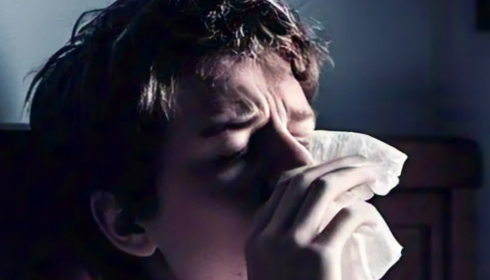
UK NHS Faces Winter Crisis Amid Surge in Flu and Other Viral Infections
The NHS is presently dealing with a major winter health crisis, with over a dozen hospitals declaring 'critical events' as flu rates rise to worrisome proportions. Health officials have reported an unusually high demand, with flu-related hospital admissions doubling from last year's peak.
According to recent NHS figures, flu patients occupy almost 5,000 hospital beds per day, up from 1,190 beds a month agoHospitalised with the flu on Christmas Day; the number had increased by over 25% by December 29.9. Professor Julian Redhead, NHS National Clinical Director for Urgent and Emergency Care, called the situation "concerning," stating that the flu outbreak shows no indications of abating.
"These latest figures show the pressure from flu was nowhere near letting up before we headed into the New Year," according to Professor Redhead. "On top of flu, there is also continual pressure from Covid, RSV, and norovirus."
The NHS is coping with not only the flu pandemic but also a high number of Covid, respiratory syncytial virus (RSV), and norovirus cases—a combination that health officials have dubbed the "quad-demic." Last week, Covid patients occupied an average of 1,184 beds per day, while norovirus cases were 40% higher than the same period last year.
Furthermore, the number of children hospitalised for RSV has increased by nearly 50%, with an average of 74 paediatric cases reported each day. Despite some decline in norovirus incidence, hospitals continue to be extremely overburdened.
Adding to the concerns, reports indicate an increase in human metapneumovirus (hMPV) cases in China, which causes flu-like symptoms. Though not a huge problem in the UK, health professionals are actively monitoring the situation.
The UK Health Security Agency (UKHSA) has issued amber cold health advisories, predicting freezing temperatures in the following days. Cold weather worsens respiratory infections, especially among susceptible groups. Professor Redhead recommended, "If you are at risk, try to stay warm and stock up on any regular medications."
In response to the growing winter challenges, the NHS has developed a number of measures aimed at handling the increased demand and ensuring patient safety. One of the most significant developments has been the addition of more than 1,300 hospital beds compared to the same period last year. The goal of this capacity increase is to accommodate the growing number of hospitalised flu, Covid, RSV, and norovirus patients.
Discharge measures have also contributed significantly to the availability of beds for new patients. On Christmas Eve alone, NHS personnel discharged more than 15,000 patients, representing a 40% increase over the previous week's daily average. At the height of the crisis, these measures helped keep patients moving through hospitals.
To improve its emergency response, the NHS upgraded its 24-hour coordination centres and expanded same-day emergency care services. These enhancements aim to give patients faster and more efficient care, lessen pressure on A&E departments, and prioritise critical situations. Together, these measures demonstrate the NHS's concerted attempt to meet record demand while mitigating the consequences of the current health crisis.
Health officials have urged the public to use NHS 111 online for non-emergency advice and save 999 calls and A&E visits for life-threatening emergencies. Vaccination remains an important preventive step, and eligible people can still get flu and Covid vaccines at walk-in clinics or pharmacies.
Wes Streeting, Secretary of State for Health, acknowledged the enormous burden on the NHS and detailed the government's plans to alleviate the issue. "The tidal wave of flu this winter has seen more than three times as many patients in the hospital compared with last year," stated the minister. "This government has ended the strikes, so staff are on the frontline this winter rather than the picket line, introduced the new RSV vaccine, and put immediate extra investment into the NHS."
Streeting emphasised the government's commitment to long-term reform, saying, "We've made it clear from the beginning that the status quo isn't good enough." We are investing in and changing our NHS, as well as tackling the issue of social care reform, in order to ultimately break the pattern of yearly winter crises."
Despite interim fixes and greater investment, health professionals warn that long-term efforts are required to solve fundamental concerns in healthcare and social care. The NHS's ability to withstand winter challenges without long-term change remains uncertain. Many people believe that fixing the social care problem is critical to reducing demand on hospitals and emergency services.